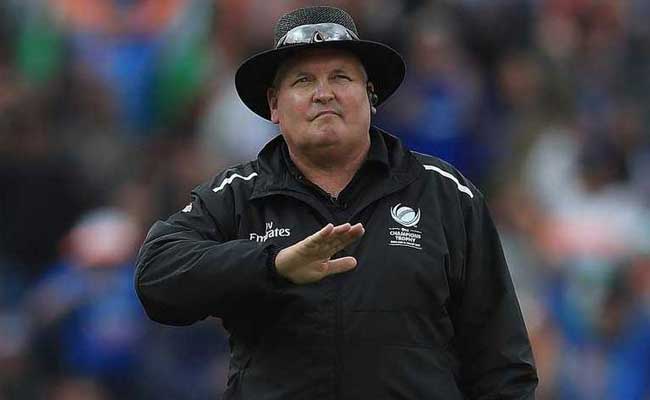
South African cricket umpire Marais Erasmus, who officiated during the ICC Cricket World Cup 2019 final between England and New Zealand, opened up on his umpiring decisions that might have costed the Kiwis their maiden 50-over World Cup title back in 2019, including a controversial decision to avoid six runs to England after the ball had touched Ben Stokes' bat while running and ran towards the boundary. Erasmus was one of the on-field umpires along with Sri Lanka's Kumar Dharamsena during the epic title clash between two nations, which saw the Three Lions lift their maiden World Cup on boundary count after the regular game was tied at 241 runs each and the Super Over ended in a tie as well.
During the final over of the game, England needed 15 runs with Stokes and Adil Rashid at the crease. On the fourth ball of the inning, the duo ran a double. Before Stokes could make it to his crease, the throw sent by Martin Guptill touched Stokes' bat and the ball went racing to the boundary. With England batters having taken two and the ball running towards the boundary, England was given six runs, reducing the deficit to three runs in two balls.
However, as per rules by ICC, only five runs should have been given as both batters had not completely crossed while taking the second run, when Guptill's throw touched Stokes' bat. That decision proved to be extremely decisive as it reduced the deficit to three in two balls from nine runs in three balls. The match and Super Over ended in a tie and England won their maiden title because they had more boundaries.
Speaking to Telegraph Cricket, Erasmus, who retired from umpiring after the second Test between New Zealand and Australia earlier in March, said that next over he had a discussion with Dharamsena about his decision. They had not picked that Stokes-Rashid had failed to cross completely during the second run and ended up giving one extra run to England.
"The next morning (after the final) I opened my hotel room door on my way to breakfast and Kumar opened his door at the same time and he said 'did you see we made a massive error'. That is when I got to know about it. But in the moment on the field, we just said six, you know, communicated to each other 'six, six, it's six' not realising that they haven't crossed, it was not picked up. That is it," said Erasmus as quoted by Telegraph.
Also, Erasmus said that one of his other errors, adjudging Kiwi batter leg-before-wicket for 15 even though the ball was missing the leg stump, also impacted the game. The umpire said that the ball was too high and Kiwis had wasted their last review earlier.
"That was my only error in the whole seven weeks and afterwards I was so disappointed because it would have been an absolute flip had I got through the whole World Cup not making an error and that obviously impacted the game a bit because he was one of their top players," admitted Erasmus.
Erasmus was appointed to the Elite Panel of ICC umpires in 2010, making him the joint-longest serving current umpire on the list, alongside Rod Tucker.
(This story has not been edited by NDTV staff and is auto-generated from a syndicated feed.)
Topics mentioned in this article





Leave a Reply